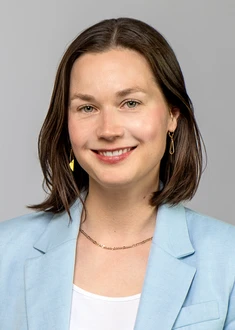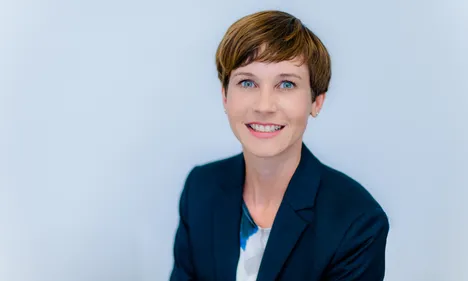Research Adjuncts
Dr. Anna Brzykcy
Anna Brzykcy joined the Chair of Research and Science Management in January 2019 as a postdoctoral researcher. In September 2019, Anna graduated from the University of St. Gallen (Switzerland) with a PhD in Management. Her dissertation is titled "Comparing workplace experiences of persons with and without disabilities: The role of labeling and work flexibility" (summa cum laude). She earned her M.Sc. in Psychology from Ludwig Maximilian University of Munich (Germany). Previously she studied Psychology and German Philology at the Jagiellonian University in Kraków (Poland) and Friedrich Schiller University Jena (Germany).
Anna’s work provides insights on the effects of (self-) stigma, work flexibility, and destructive forms of leadership behaviour. For example, she examines how official (self-) stigmatizing labels (e.g., severely disabled person) influence social inclusion at work. She also addresses the question of why some employees do not make negative attributions about their leader’s destructive behaviour, whereas others interpret the same behaviour negatively. In her role as systemic therapist and trainer for executive education, she is currently implementing workshops on the role of leadership for both leader and employee mental health.
See here for more information.
Dr. Alina Gales
Dr. Alina Gales was a PhD candidate in the area of Gender Studies in Engineering and Science and completed her dissertation at the chair in 2020, titled “Women and Technology: How Far Have We Come in the Digital Age? Women's Perceptions of Gendered Technology Stereotypes”. She is currently head of Staff Unit Diversity & Inclusion at TUM, working with Prof. Dr. Claudia Peus in her role as Executive Vice President for Talent Management and Diversity. In this position, she conceptualizes and implements strategic initiatives to develop the EU's leading academic institution into an even more diverse and inclusive university and employer. Her academic and professional work centers on the mutual influence of digital technology and society in relation to gender, with a particular focus on how Artificial Intelligence shapes structures of privilege and discrimination. She is interested in how digital technologies alter traditional power dynamics and societal hierarchies – and how individuals, especially women, can leverage these technologies to influence their societal status and agency. Alina Gales regularly gives talks, keynotes, and presentations; leads workshops, lectures, and seminars; participates in and moderates panel discussions; and is featured in interviews.
See here for more information.
PD Dr. habil. Kristin Knipfer
Dr. habil. Kristin Knipfer is Senior Research Fellow of the Chair of Research and Science Management. Her research centers around leadership, lifelong learning, and new work and investigates leadership as a catalyst of learning and innovation in new ventures, higher education institutions, and large corporates. Her research findings were published in The Leadership Quarterly, Applied Psychology, Frontiers in Psychology and Journal of Management Education.
Since November 2020 she is Executive Director of the TUM Institute for LifeLong Learning, where she is responsible for the design of the evidence-based leadership and talent development programs for academic leaders and science managers. As leadership development expert and senior lecturer, she has implemented innovative training methods including educational technology to support leaders’ learning and transfer of training.
See here for more information.
Dr. Selina Stracke

Dr. Selina Stracke is an Organizational Psychologist with a PhD from the TUM School of Management. She completed her dissertation in December 2022 at the Chair of Research and Science Management, titled “Teams in the (New) World of Work: How Teams (In)effectively Handle Adversity in the Dynamic World of Work.”
She is currently a Leadership Development Expert at the TUM Institute for Lifelong Learning, where she designs and delivers evidence-based learning formats to empower (academic) leaders and teams in an evolving work landscape. In this role, she focuses on enhancing psychological safety, promoting values-driven leadership, and strengthening team dynamics across professional and academic contexts.
See here for more information.


